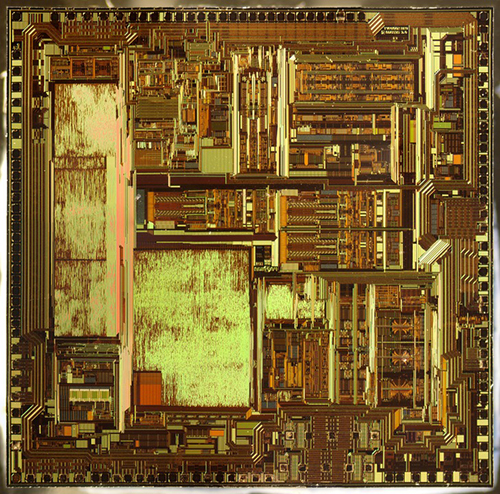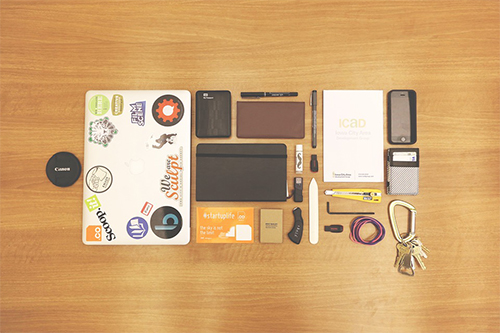ANNI 10 : IL BOOM DEGLI EVENTI E DEGLI STIMOLI
Breve invito a non farsi trascinare dalla macchina del tempo.

Non è la felicità che bisogna cercare. Più la si cerca, più fugge. Bisogna cercare l’arte di vivere, che dà in regalo grandi e piccole felicità. [1]
E. Morin
testo di Orazio Caruso
In piena età della tecnica e sempre più spesso negli ultimi anni, si sta diffondendo la tendenza e l’illusione di poter risolvere un determinato problema della nostra vita o la spiegazione di un fenomeno affidandoci sempre e solo al calcolo numerico.
Influenzati dalla letteratura mediatica pensiamo a volte che anche i fenomeni più complessi siano quantificabili e riducibili a dati elementari. Finiamo col convincerci inoltre che ogni cosa si possa prevedere, prevenire, curare con i medesimi stratagemmi della tecnica.
A questo si aggiunge il fatto che siamo affiancati da cervelli elettronici che spesso abbiamo interposto tra di noi e il mondo, dando quindi in gestione una parte delle nostre percezioni.
Pensiamo in maniera banale alle previsioni meteo. Abbiamo necessità di sapere che tempo farà tra due ore o adesso che stiamo parlando, senza però magari curarci di alzare il naso per controllare di persona. Che dire quindi del fatto che scarichiamo in continuazione app sul nostro cellulare per assicurarci di avere il controllo su tutto, per mettere a sistema ogni cosa (appunto): dalle ultime agenzie stampa alla nostra frequenza cardiaca? Tutto ciò (lontano dal negarne alcuni risultati comunque positivi) può avere effetti dannosi sul nostro stato di salute e non mi riferisco tanto alle onde elettromagnetiche quanto al fatto che, come dicevo prima, finiamo per non usare al meglio le nostre capacità percettive.

Mi spiego con altri esempi: ogni volta che demandiamo al controllo della macchina, di un orecchio elettronico per esempio il riconoscimento di un brano musicale, ci affidiamo più o meno inconsapevoli ad una memoria virtuale, fuori di noi. Di conseguenza, per controllare tutta una serie di informazioni, le salviamo sul nostro tablet sotto forma di documenti, magari ordinatissimi in rigorosi archivi…ma in qualche modo queste informazioni, spesso importanti per il nostro lavoro o per altro, ci sfuggono dalla memoria, la nostra, pensando che comunque saranno sempre dentro l’hard disk. In pratica dimentichiamo di possederle o le possediamo dimenticandole. Dove voglio arrivare?
Così facendo scommettiamo sempre meno sulle nostre capacità mentali e sensoriali in generale e tendiamo ad avere necessità di strumenti scientifici che debilitano lentamente la fiducia nelle nostre stesse capacità personali.
Ad ogni modo siamo in piena era del boom dell’informazione e diventa obbligatorio, per gestire bene le nostre risorse e anche per sopravvivere, imparare ad informarsi. Un po’ come apprendere un mestiere mentre lo si svolge.
In un sistema delicato e ingarbugliato come quello globale, c’è da dirlo, il discorso è generale ed il senso comune, i sentimenti, gli stati d’animo sono per forza di cose manipolati da una serie di influssi costanti: email, notifiche, agenzie, cronache, allarmi vari, attentati…Inoltre, dati statistici settimanali di benessere/malessere, il Pil, la borsa, le notizie delle varie testate o pagine web non bastano o non sono adatte a mio avviso a capire la direzione da seguire e creano sovente psicosi collettive e uno stato di perenne agitazione.
Si alimenta la paura di rimanere fuori dal controllo anche del proprio mondo domestico, spesso si teme per la propria incolumità e si rischia di perdere il controllo.
Con queste premesse, un po’ austere ma necessarie per delineare il contesto in cui viviamo volenti o nolenti, non si vuole negare l’importanza strategica che gioca la tecnologia e una giusta informazione per la nostra formazione culturale. Nelle nostre sfide creative, perché è di questo che parliamo, sono necessarie entrambe.
Bisogna però capire in che modo possono essere usati questi strumenti complessi (anche l’informazione lo è) prima di tutto. Dopo provare a cercare la giusta via da seguire o il “come si fa” per intraprendere un percorso senza illudersi di trovare delle risposte tanto facili quanto devianti. Questo ci interessa.
In questo numero intervistiamo giovani che costruiscono il loro mestiere giorno per giorno, seguendo spesso il loro istinto creativo. Essi non fuggono dalle difficoltà e così facendo vivono delle loro passioni, realizzando un po’ alla volta delle storie di successo. I loro racconti lanciano nel complesso un messaggio positivo e stimolante in cui il filo conduttore sembra essere condensato in una parola sola: Qualità!
Se siete stanchi degli ultimi otto anni di crisi ma ancora abbastanza curiosi, giovani nel cuore e vogliosi di chiudere la bocca a quanti vorrebbero solo urlare e spargere negatività, questo numero di PDA è per voi!
Orazio Caruso

[1] E. Morin, Insegnare a vivere. Manifesto per cambiare l’educazione, Raffaello Cortina Editore, Milano 2015
10’s: THE BOOM OF EVENTS AND INCENTIVES
Short call not to to get carried away by the time machine.
It is not the happiness that you have to look for. The more you look, the more it escapes. You have to look for the art of living, which gives large and small happiness as a gift. [1]
E. Morin

text by Orazio Caruso; translations by Luigi Cavallo and Orazio Caruso
In the heart of the age of technology and more and more often in recent years, there is a growing trend and the illusion of being able to solve a particular problem of our life or the explanation of a phenomenon always trusting only in numerical calculation.
Influenced by media, sometimes we think that even the most complicated phenomena are quantifiable and can be reduced to basic data. We further convince ourselves that we can predict, prevent, treat everything with the same tricks of the technique.
Moreover we trust in electronic brains that we often have interposed between us and the world, giving them the management of a part of our perceptions.
Let’s just think about the weather forecast. We need to know the weather conditions for the next two hours or even for the present moment, maybe without raising our nose to check ourselves. So, what about downloading apps all the time on our phone to ensure ourselves to put everything under control: from the latest news to our heart rate?

Everything (far from denying some positive results anyway) can be dangerous for our health, not referring to electromagnetic waves, but to our sanity, as I said before, because we end up not using the most of our perceptual capacities.
Let me explain with other examples: whenever you delegate to the machine control, such us an electronic ear, the recognition of a music track, we trust more or less unaware to an external virtual memory. Consequently, to control a series of data, we store them on our tablet as documents, perhaps highly ordered… but somehow these data, often important for our work or for anything else, escape from our own memory, thinking that however they will always be inside the hard drive. Basically we forget to own them or we own them forgetting them. Where I’m going?
By doing so we bet less and less on our sensorial and mental capacities in general and tend to need scientific instruments which slowly weaken confidence in our own personal abilities.
However we are in the era of the information boom and it gets mandatory to better manage our resources and also to survive, learning to be in step with the times. Like learning a trade while you conduct it.
In a delicate and tangled system like the global one, we need to say, the situation is general and common sense, feelings, moods are inevitably manipulated by a number of constant influences: emails, notifications, agencies, chronicles, various alerts, attacks… in addition, wellness/malaise statistical weekly data, the GDP, the Stock Market, the news are not enough or not appropriate in my point of view to understand the direction to take and create often collective psychosis and a state of constant agitation.
All this feeds the fear of being out of control even of your home world, often being afraid of your safety and risking to lose control.
With these premises, a little bit austere but necessary to outline the context in which we willy-nilly live, we don’t want to deny the strategic importance of technology and the right information for our education. In our creative challenges, because this is what we talk about, we need both.
But first we must know how these complex instruments (including the information) can be used. Then we can try to find the right way to take or the “know how” to start a path with no illusions in demanding to find easy or deviant answers. This is what concerns us.
In this issue we interview young men who build their trade every day, often following their creative instinct. They do not run away from problems and in this way they live on their passions, creating step by step success stories. Their stories give in general a positive and inspiring message in which the central thread seems to be condensed into one word: Quality!
If you are tired of the last eight years of crisis but still quite curious, young in your heart and eager to silence those who would just scream and spread negativity, this issue of PDA is for you!
text by Orazio Caruso; translations by Luigi Cavallo and Orazio Caruso

